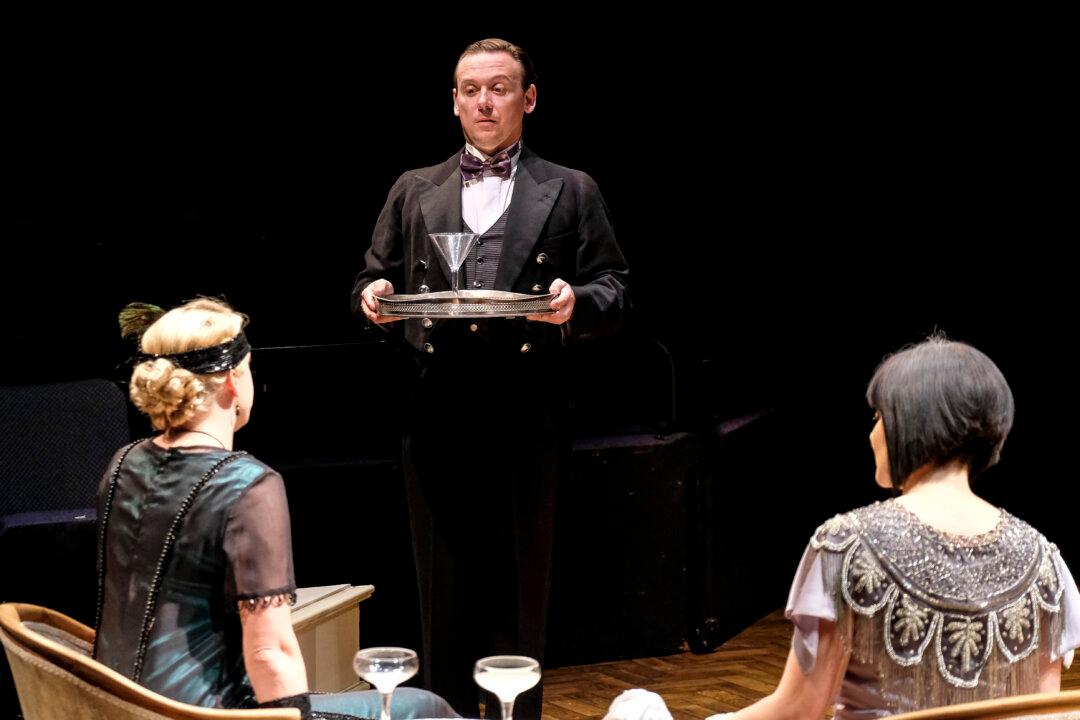NEW YORK—Alan Ayckbourn’s comedic drama “A Brief History of Women” has a misnomer for its title. Something more accurate would be “One Man’s Experience with Women Through the Decades,” or “The Life of an Unassuming and Relatively Insignificant Fellow.” Part of the Brits Off-Broadway Festival at 59E59 Theaters, the play examines key events in the life of Anthony (“Tony”) Spates (Antony Eden), and some of the women who cross his path.
Subtitled “a play in four parts” and spanning 60 years, the story begins at Kirkbridge Manor in Great Britain. The year is 1925 and the jazz age is in full swing. With a massive party is taking place to celebrate the engagement of Lady Kirkbridge’s daughter (Laura Matthews), Anthony, then a local boy of 17, has been hired as a servant for the event.





